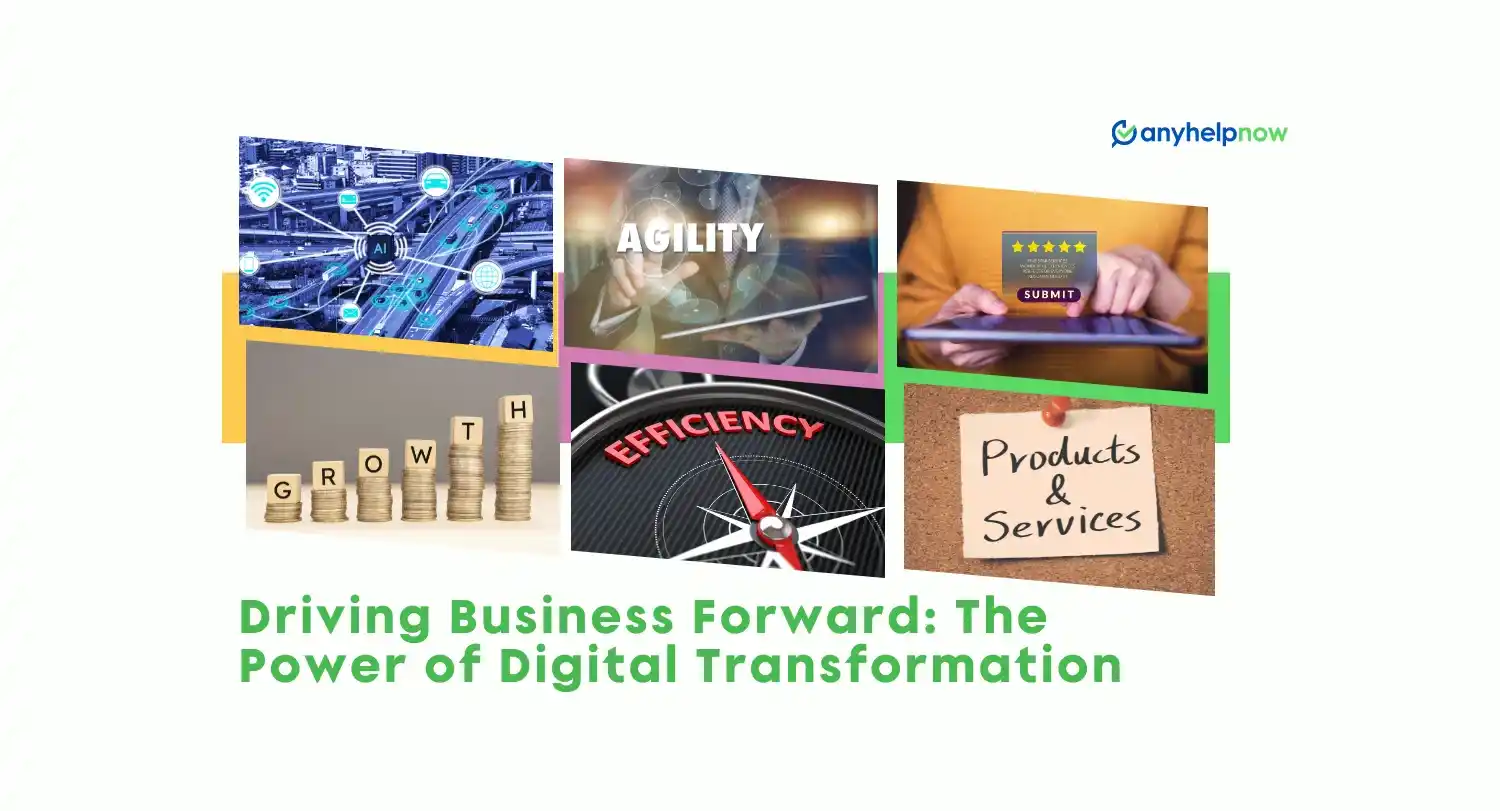Digital transformation is disrupting businesses worldwide, yet it has become a necessary change initiative for companies to remain competitive in the digital age. This comprehensive guide explains what digital transformation entails, why it is critical for business success, key trends and drivers, framework and components, as well as real-world examples.
Digital transformation refers to the integration of digital technologies into all areas of a business to change how it operates and delivers value to customers fundamentally. It's about reimagining how a company uses technology to create new or modify existing products, services, processes and business models to meet evolving market and customer demands in the digital age.
The urgency for digital transformation has accelerated exponentially due to the COVID-19 pandemic as companies shift more business functions and interactions online. A McKinsey survey found that the pace of digital transformation has advanced by seven years in just months. The disruption fueled by advancing digital innovations means companies must embark on digital transformation initiatives to enable new ways of working and doing business to remain competitive.
Key Takeaways and Trends
In closing, here are the major highlights that companies must consider when developing digital transformation roadmaps:
Digital transformation powered by emerging tech integration is essential for future business success and survival
Key drivers range from digital disruptions, remote work transitions and data proliferation to changing customer expectations and COVID-fueled shifts
Transformations encompass changes to business strategy, customer experiences, products/services, processes, workforce skillsets and corporate culture
Cloud migration, data and AI adoption are pivotal technical investments
Change management and agile organizational structures are critical
Successful digital transformation delivers greater innovation, flexibility, efficiency and hyper personalized customer experiences to drive growth in the digital era
Looking ahead, no company can ignore the exponential technologies and digital change revolutionizing life and business. Thriving with digital transformation requires commitment from executives to prioritize and adequately fund multi-year initiatives to stay competitive now and in the long run. What transformation initiatives does your company have underway?
Why is Digital Transformation Important for Businesses?
There are several compelling reasons why digital transformation has become essential for business success today:
Drives Innovation
Digital transformation is critical for enabling ongoing innovation, which is the lifeline of companies in the digital economy. The integration of emerging technologies like artificial intelligence (AI), automation, Internet of Things (IoT), cloud, big data analytics and more into business models, operations, products and services fosters greater innovation. It empowers companies to create new or greatly enhanced offerings at a faster pace to meet changing customer expectations.
Improves Agility
The flatter organizational structures, data-driven decisions and agile frameworks sparked by digital transformation lead to greater business agility. Companies can spot and respond to market shifts and customer needs faster. Staying agile is vital to outmaneuver digital disruptors that leverage such flexibility better scale fast.
Enhances Customer Experiences
Customers today demand specialized, personalized and seamless experiences across channels. Digital transformation helps unify data for a single view of the customer, enabling real-time hyper personalized engagement. Advancing technologies also allow new forms of interaction to approximate physical experiences digitally. Superior customer experiences build brand loyalty.
Drives Revenue Growth
The innovations and enhanced customer experiences enabled by digital transformation open new revenue streams and growth opportunities. Companies can tap into new markets and expand their addressable market. Digital capabilities also make cross-selling and upselling easier. McKinsey notes that digital leaders report 3.5x higher revenue growth than non-digital leaders.
Improves Efficiency
Digital transformation powered by automation, AI and data analytics improves business processes, decision-making, productivity and more. Streamlined operations and lower costs then translate into higher profit margins. Accenture found that mature digital companies had 32% higher profit margins than less digitally mature peers.
Fuels Business Model Disruption
Digital transformation isn't just about bolting on new technologies into existing business models. Instead, it represents thinking differently about how an organization delivers value. Netflix's shift from a traditional video rental model to a subscription streaming platform exemplifies such business model disruption. Digital transformation enables companies to leverage new innovative business models for disruptive growth.
In today's highly digital business landscape, digital transformation is no longer an option but an imperative to remain relevant and drive sustainable success.
Key Trends and Drivers of Digital Transformation
Digital transformation is inevitable today thanks to several key trends including:
Exponential growth of emerging technologies like artificial intelligence, automation, Internet of Things, cloud, big data analytics and more that continue to mature and prove business value
Accelerating pace of digital disruptions and new entrants that redefine industries
Rising expectations for hyper-personalized, seamless digital experiences and interactions
Ongoing shifts towards remote, distributed digital work environments
Intensifying and changing regulations that call for greater digital governance and reporting
Data proliferation requiring advanced analytics and intelligence to drive decisions
Blurring industry boundaries sparked by digital convergence
Meanwhile, the COVID-19 crisis has become one of the biggest drivers propelling digital transformation by forcing rapid shifts in customer engagement and business operations online. A 2021 McKinsey Global Survey found that companies have accelerated the digitization of customer and supply-chain interactions by 3-4 years and their share of digital or digitally enabled products by 7 years.
Several technology investments and organizational capabilities stand out as being most important for transformation success according to McKinsey, including:
Cloud computing adoption
Modernizing IT infrastructure and apps
Building out data and analytics capabilities
Expanding automation and AI
Developing customer/user experience frameworks
Reskilling workforces
Revamping incentives and key performance indicators (KPIs)
The scale and pace of emerging technology innovation combined with the COVID-fueled impetus ensures digital transformation will continue rising on the strategic radar for businesses globally.
Digital Transformation Framework and Components
Digital transformation demands significant changes on many levels of an organization to drive the desired business value. It involves omni-channel cultural, technological and operational transformations.
The key arenas of digital transformation encompass:
Business Strategy
Digital transformation starts with leaders re-evaluating their vision, mission, values and business strategy in the digital context to guide technology integration and innovation. Questions around how to leverage new technologies to enhance or invent business models and revenue streams, expand addressable markets globally, or improve cost efficiency help shape strategy.
Customer Experiences
Delivering seamless personalized engagement across channels is central to digital transformation. Key activities involve unifying data for a 360-degree customer view, leveraging real-time analytics to infer needs/intent, integrating emerging tech like AI and IoT to approximate physical experiences digitally, and orchestrating contextually relevant omnichannel interactions.
Products and Services
Digital transformation compels reinventing existing offerings and inventing new ones to meet evolving customer demands. Efforts include bolting on smart, connected technologies like sensors or software to enhance value, digitizing physical offerings virtually, utilizing data and analytics to continuously refine them, and leveraging flexible infrastructure to accelerate innovation cycles.
Business Processes
Transforming business processes is essential to break down silos impeding workflow efficiency and data utilization. Companies implement technologies like cloud, automation, IoT and AI to optimize operations. Cross-functional agile ways of working replace rigid structures. Data, analytics and intelligence pervade decision-making.
Workforce and Culture
The technologies and new ways of working sparked by digital transformation demand different skillsets and culture. Change management ensures workforce alignment and readiness. Companies emphasize hires and training in areas like user experience design, data science and software engineering. Leadership commitment and cross-functional collaboration is vital.
Governance and Compliance
Digital transformation magnifies data security, privacy and regulatory risks. Companies must implement robust cybersecurity defenses, governance protocols and compliance measures into technologies, business processes and culture. Accountability and transparency are also important elements.
The core components of digital transformation - including emerging tech integration combined with overhauling customer experiences, products/services, processes, workforce skillsets and company culture - enable strategic metamorphosis vital for future growth.
Real-World Examples of Digital Transformation Done Right
Here are some shining examples of successful large-scale digital transformation initiatives from leading companies:
Disney’s Omnichannel Content Experience Vision
The iconic movie studio and theme parks pioneer engineered a massive digital transformation initiative to become a direct-to-consumer powerhouse. It acquired BAMTech to launch flagship streaming service Disney+ that soared to 164 million subscribers by 2022. Disney also unified backend infrastructures, leveraged customer data and analytics to infer viewing interests, and pursues omnichannel content delivery seamlessly across parks, hotels, cruises, stores and more to immerse fans.
Starbucks’ Mobile Order & Pay Platform
The specialty coffee trailblazer introduced its industry-first mobile order and pay platform to enormous success with 26 million Starbucks Rewards members. Over a quarter of orders now come via the intuitive app that recalls customer favorites, enables ordering ahead for grab-and-go convenience, and integrates payments among other perks to drive $3 billion in annual revenues.
Ancestry’s DNA-Powered Consumer Genetic Testing
The pioneer of consumer genetic testing underwent massive digital transformation in recent years to tap into surging mainstream consumer demand. Ancestry digitized global historical records to over 20 billion searchable names linked to over 100 million family trees. Its processing of over 18 million consumer DNA samples combined with powerful analytics provides interactive ethnicity reports and connections to distant relatives to reveal biological family histories.
Domino’s AnyWare Omnichannel Ordering Ecosystem
The pizza chain dominates digital orders with over 65% coming via AnyWare – its seamless omnichannel platform comprising web, mobile, Alexa, Slack, cars, watches and more. By integrating disparate systems into a unified data engine, Domino’s can sync order/delivery status across all interfaces. AI and analytics then enable contextual recommendations and predictive ordering based on purchase history and behavior patterns.
Target’s Same-Day Delivery with Shipt
The big-box retailer acquired same-day shipping service Shipt for $550 million to accelerate its omni-channel strategy. Expanding Shipt’s network of personal shoppers fulfilling online orders from Target stores for speedy delivery has boosted digital sales over $1 billion. Customization like shopper texts enroute and member coupons provide premium experiences that aid customer loyalty.
These real-world examples of successful large-scale digital transformation highlight how leveraging emerging technologies to enable new products, business models and customer experiences can drive tremendous growth and competitive differentiation.
Frequently Asked Questions (FAQs)
Q: What is the impact of digital transformation on business operations?
A: Digital transformation has revolutionized the way businesses operate by leveraging technology to enhance efficiency, productivity, and customer experience.
Q: How has the COVID-19 pandemic influenced digital transformation efforts?
A: The COVID-19 pandemic has accelerated digital transformation initiatives as organizations adapt to remote work, digital services, and online collaboration.
Q: What are some trends in digital transformation that businesses should be aware of?
A: Trends in digital transformation include cloud computing, artificial intelligence, Internet of Things (IoT), cybersecurity, and data analytics.
Q: What are the benefits of digital transformation for businesses?
A: The benefits of digital transformation include increased operational efficiency, cost savings, improved decision-making, enhanced customer experiences, and a competitive edge in the market.
Q: Why is digital transformation important for modern organizations?
A: Digital transformation is crucial for organizations to stay relevant, competitive, and resilient in a rapidly evolving digital landscape.


